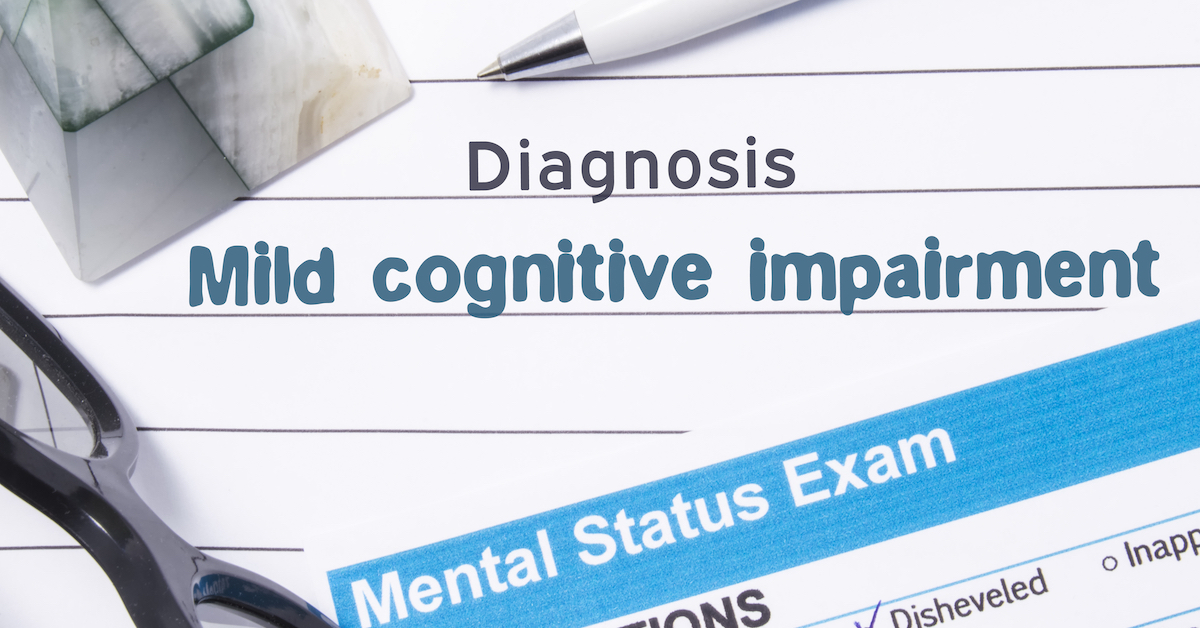Currently, the most accurate way to diagnose Alzheimer’s is via an invasive and uncomfortable spinal tap or a high-cost PET scan.
Clearly something much simpler and more comfortable is needed, which is why so many labs around the world are racing to develop a blood test that’s as good or even better than what we’ve got now.
After many years of work, scientists from Sweden think they’ve finally found one.
One expert has described the new blood test as “a potential game changer” and “a transformative step to earlier diagnosis,” but others aren’t so sure. Here’s the story…
While medical researchers can’t agree on what exactly causes Alzheimer’s disease, they can agree on the benefits of early diagnosis and early intervention in the treatment of the disease.
One thing doctors look for is Mild Cognitive Impairment (MCI). Before people are diagnosed with Alzheimer’s, they often are diagnosed with MCI. People with MCI experience loss of memory that’s more than the norm for someone their age, but is not severe enough to affect normal daily life and activities in a major way.
Some people with MCI will never get any worse; a few will even get better. However, many will go on to develop Alzheimer’s.
Two Blood Markers are Key
Until now, it hasn’t been possible to tell which MCI sufferers will progress, but researchers from Lund University spent years analyzing different markers in the blood, finally settling on two that were the most promising.
Neither of these are the familiar amyloid beta proteins that are most commonly associated with the development of Alzheimer’s disease. Surprisingly, the Lund researchers said the amyloid proteins were not precise enough to be used as markers.
The markers that measured up were a tau protein called Ptau181, and another protein called neurofilament light (NfL).
Tau proteins are abundant in brain cells, and chemical changes to these proteins are strongly linked to Alzheimer’s. Neurofilament light is a protein that’s highly expressed in nerve fibers and has recently been linked to a wide range of neurological diseases.
89 Percent Accurate
Having settled on these two, the scientists needed to test them. So, they enrolled 573 people with MCI who had an average age of 71. Then the researchers watched to see who progressed to Alzheimer’s four years later.
They discovered that their test could predict with 89 percent accuracy the patients who would progress from MCI to Alzheimer’s. They could also predict with 88 percent accuracy the patients who would not progress.
Lead researcher Oskar Hansson reported, “Our goal over the last few years has been to find simple methods that can be used in primary care to make an early diagnosis and to begin treatment to relieve symptoms at an earlier stage. This will require more studies, but we have absolutely come one major step closer to our goal.”
The team published their results in the journal Nature Aging last November.
Mixed Opinions Among Experts
Masud Husain, professor of neurology at the University of Oxford, was the most enthusiastic, saying, “This is a potential game changer. We need further validation but in the context of other recent findings this could be a transformative step to earlier diagnosis, as well as testing new treatments at earlier stages of the disease.”
Dr. Richard Oakley, head of research at the Alzheimer’s Society, was also upbeat. In his view, “…if these blood markers can predict Alzheimer’s in larger, more diverse groups, we could see a revolution in how we test new dementia drugs.”
Other experts were more muted, such as neuroscientist John Hardy from University College London (UCL). Dr. Hardy described the results as “welcome, but not an unexpected finding.”
His UCL colleague, psychiatrist David Curtis, could only say that it “provides some additional knowledge.”
Several others pointed out that because huge numbers of people are diagnosed with MCI, even the admittedly “impressive” sensitivity of the test would still leave “considerable” levels of misdiagnosis among MCI sufferers who will not get Alzheimer’s disease or go on to get the disease.
In addition to Ptau181 and NfL, other markers of Alzheimer’s disease are also under investigation.
Two More Promising Candidates
Days before the Lund University study was published, another study appeared in the journal Nature Communications.
In this study, scientists from Boston found that blood levels of a compound called NT1 can accurately predict future cognitive decline in clinically healthy elderly participants. NT1 measures fragments of tau secreted by neurons in response to amyloid pathology.
The scientists found that the greater the NT1, the worse the cognitive decline four to six years later. Interestingly, they also found that levels of NT1 correlate with NfL.
Last August we reported on another very promising marker called Ptau217. Ptau217 can likewise predict the onset of dementia years before the earliest symptoms of the disease. In fact, tests for this marker were also able to distinguish patients with Alzheimer’s from those with other forms of dementia with 96 percent accuracy, making it highly specific, even more specific than these new blood marker tests.
One, or a combination of these blood markers, is bound to be established as the most accurate test to predict Alzheimer’s disease. I’m hopeful that a test will emerge victorious and begin to be used in clinical practice in the near future.
- https://www.lunduniversity.lu.se/article/app-predicts-risk-developing-alzheimers
- https://www.nature.com/articles/s43587-020-00003-5
- https://www.sciencemediacentre.org/expert-reaction-to-study-of-two-blood-biomarkers-
that-may-predict-dementia-in-those-with-mild-cognitive-impairment/ - https://www.alzforum.org/news/research-news/plasma-nt1-tau-snippet-predicts-cognitive-
decline-alzheimers - https://www.awakeningfromalzheimers.com/new-blood-test-spots-alzheimers-up-to-20-
years-before-memory-loss/







